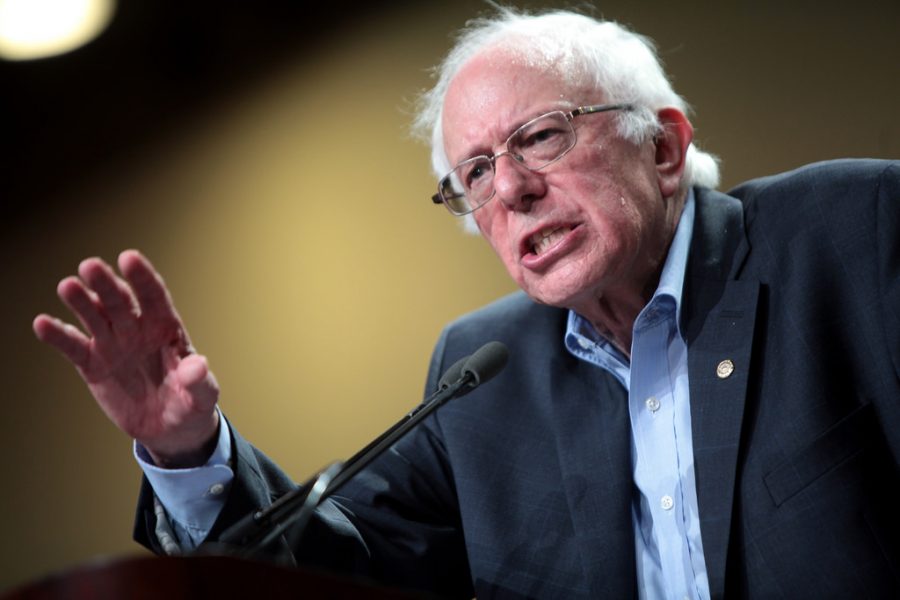Over the Hill, down in the Trumps and totally Bernt out?
May 26, 2016
I’m going to preface this with the fact that in this opinion I am not going to tell you whom my vote goes to—because right now it doesn’t matter.
Right now the topic is as simple as this: Presidential election processes are becoming too damn long.
I personally love politics—I am in fact graduating with a degree in political science—and I do get excited to know who my options will be when the election year rolls around, but that’s it: the election year. Not the two-year circus or decade of donkeys versus elephants. The election year.
In all seriousness, this act of putting the cart before the [insert preferred party animal here] is not actually new. It’s just far more publicized than it has been in the past. Campaigns have been stretching longer and longer since the ‘70s.
According to The Economist, “[c]ampaigns grew longer after the Democrats re-wrote their party rules to give more weight to primary elections in the states rather than secretive negotiations at the nominating convention. This forced candidates to make their pitches directly to ordinary voters, which takes longer…The Republicans followed suit.”
The initial idea, to me, sounds great; the reasoning seems sound, but where did this derail? I understand the idea of the early politician getting the name recognition, but I can’t imagine that this monotonous period of bipartisanship is what people had in mind when they first implemented the policy.
In college, a lot of professors try to teach you to be “concise” and cut as much fat from around your argument as possible. And I would assume that most presidential hopefuls have in fact been told the same as (usually) highly educated people.
But lately everybody and their idiot, billionaire cousin (yes, Drumpf, I mean you), has been throwing their hat in the ring before there would seemingly even be a ring and inundating our media outlets with around-the- clock debate. Quite frankly, I’m already burnt out.
This election technically “formally” got its first contender March of 2015 when Ted Cruz spoke the words “It is a time for truth, it is a time for liberty, it is a time to reclaim the Constitution of the United States,” according to a New York Times article from the same week.
To the roaring crowd of Virginia college students, these words were probably full of hope, sparking the beginning of whatever kind of (terribly backwards) change they saw Ted Cruz bringing to the Oval Office. But when symbols become sound bites and are replayed over and over and over again, it gets tiring and, often times, annoying.
Other countries have the right idea. Britain’s elections, though their politicians have similar incentive to begin campaigning and fundraising early on, “[don’t] really begin in the public’s mind until the queen dissolves parliament, five weeks before voting day,” according to The New York Times.
This would be beneficial not only to the everyday constituent like me—who is almost starting to hate their own candidate for filling their email inbox with pleas for donations on a daily basis—but to the candidates.
“Fatigue” is not exclusive to us hard-working Americans who just want to be able to turn on the news without seeing the sick love child of Jabba the Hutt and a block of cheddar cheese flapping his yap about building a wall.
Hillary, Bernie, Jabba—aren’t you tired? I know a lot of your supporters who’d like to think you might have the drive to run again if you don’t make it to the top during this election cycle.
If many of your qualifications come from your current positions as senators and governors and entrepreneurs and state actors, maybe running for president shouldn’t take over as your full-time job.
If you’re too busy vying for the job of running the free world—who’s doing your job?



